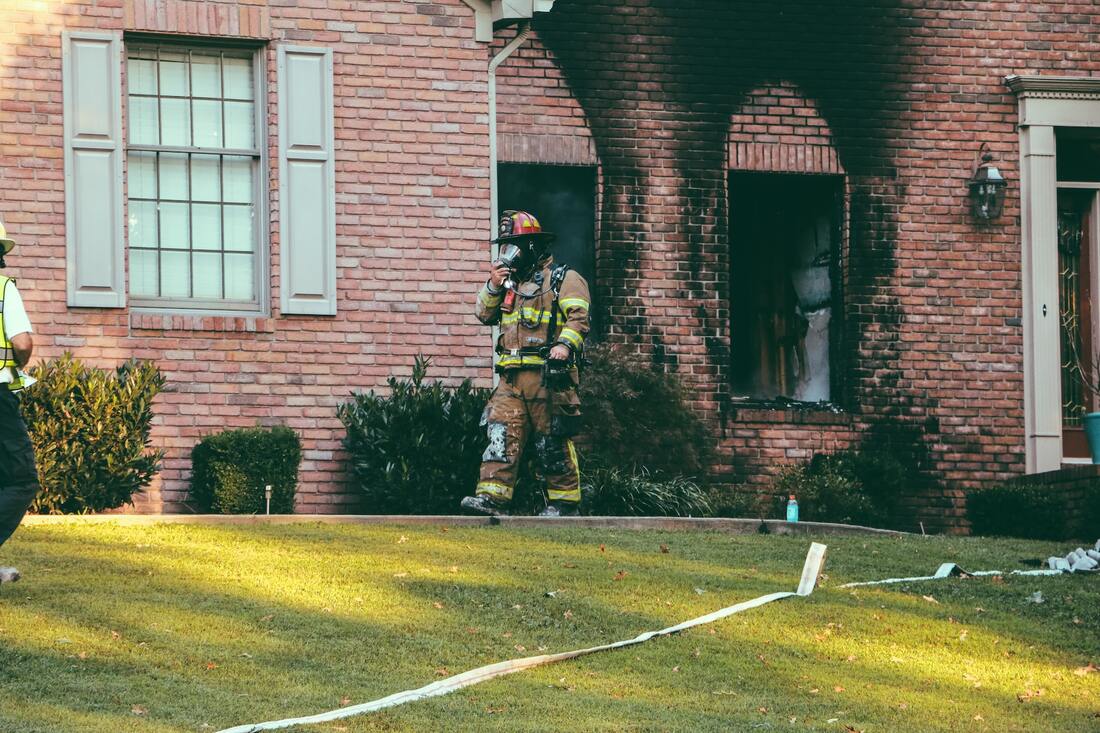|
Fires can cause devastating damage to people's homes and lives. However, the effects of a fire can extend far beyond the physical destruction of property. Fires can also have a lasting impact on the health of those affected by them. Exposure to smoke, soot, and other hazardous substances released during a fire can have a significant impact on the health of those exposed.
It is important for those affected by fire to be aware of the potential health risks associated with it. Here are some dangerous health risks you should be watching out for. 1) Skin & Eye Irritation Skin and eye irritation are two of the most common health risks associated with fires. Exposure to smoke and soot can cause skin irritation, redness, and itching. Inhaling smoke can cause eye irritation, burning, and watery eyes. Smoke can also irritate the respiratory system, resulting in coughing and difficulty breathing. It is important to seek medical care if symptoms of the skin or eye irritation persist after a fire. 2) Exposure to Harmful Chemicals Exposure to hazardous chemicals is one of the most alarming health risks after a fire. Smoke from burning materials can contain a range of toxic chemicals that can cause serious health problems if inhaled or ingested. These chemicals can include carbon monoxide, hydrogen cyanide, and polycyclic aromatic hydrocarbons, which can cause respiratory problems, skin irritation, and other long-term health problems. Therefore, it is important to ensure that the area is adequately ventilated and that any remaining smoke is cleared away as quickly as possible to prevent exposure to these dangerous chemicals. 3) Lung Exposure Lung exposure is one of the most serious health risks you could be under after a fire. Smoke from a fire contains a variety of toxic gasses and particles that can cause serious respiratory problems when inhaled. Smoke inhalation can lead to lung irritation, asthma attacks, chronic obstructive pulmonary disease, and even lung cancer in some cases. To minimize the health risks of lung exposure, it is important to avoid breathing in smoke from a fire and to seek medical attention as soon as possible if you have been exposed. 4) Breathing Issues Breathing issues can be one of the most concerning health risks after a fire. Smoke inhalation can cause respiratory distress, asthma, and even long-term breathing problems. It is important to seek medical attention as soon as possible after a fire to ensure that any breathing issues are addressed and treated. Inhaling too much smoke can lead to serious health complications, so it is important to be aware of how your body is feeling and seek help if necessary. 5) Chronic Health Effects Chronic health effects are long-term health problems that can develop after a fire. These can include respiratory illnesses, mental health problems such as depression and anxiety, and even cancer. Inhaling smoke and other toxins during a fire can cause damage to the lungs, leading to chronic respiratory illnesses such as asthma, chronic bronchitis, and emphysema. In addition, the psychological trauma of experiencing a fire can lead to long-term mental health problems. Conclusion Fire can have a devastating impact on the health of people and the environment. In addition to immediate physical injuries, fires can cause long-term health effects such as respiratory illnesses, mental health problems, and even cancer. Make sure your home doesn't bear any residual effects of the fire with the help of Pacific NW Restoration. We offer fire damage repair services to keep you and your family safe and healthy. Get in touch with us today to learn how.
0 Comments
Leave a Reply. |
Archives
July 2024
Categories |
HOME | SERVICES | ABOUT US | SERVICE AREA | FAQ | CONTACT US
PACIFIC NW RESTORATION
7275 SW 195th Avenue #201
Beaverton, Oregon 97007-5524
503-444-8909
[email protected]
www.PortlandWaterDamageRestoration.com
Beaverton, Oregon 97007-5524
503-444-8909
[email protected]
www.PortlandWaterDamageRestoration.com
PACIFIC NW RESTORATION IS FULLY LICENSED, BONDED & INSURED
OREGON C.C.B. #218307
Copyright @ 2017 | Pacific NW Restoration | All Rights Reserved


 RSS Feed
RSS Feed
